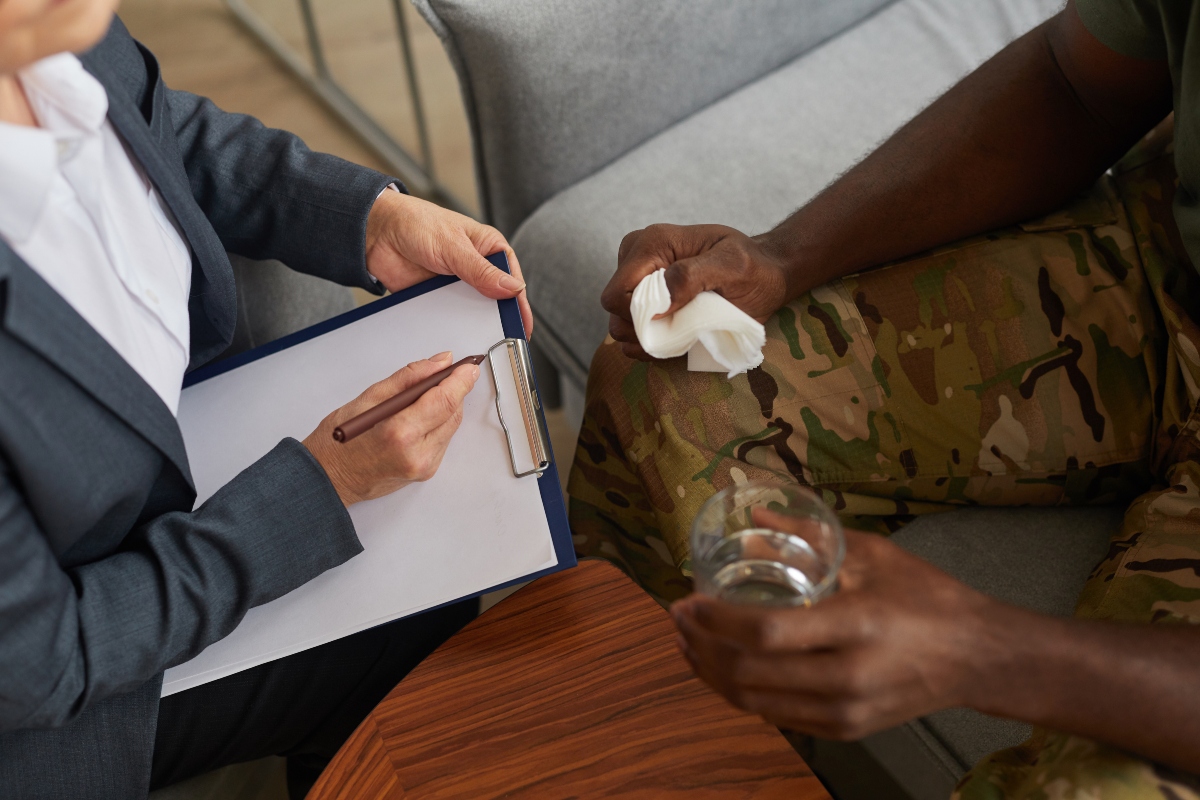7 Foods You Need to Avoid to Help Your Depression or Anxiety

Image courtesy of USAF
What foods and beverages will make your depression and/or anxiety worse? Perhaps a better question would be, “What doesn’t make us more depressed or anxious these days?” Right?
But perhaps taking a less cynical and more rational approach is best. To further explore how your diet affects your mood and functionality, consider the fact that the food you eat nourishes and strengthens your body. It must therefore have a direct impact on your body, including your brain. And as your brain regulates your body’s functions, including your mood, part of your mental health management would necessarily have to involve dietary considerations.
There is much research indicating that individuals who maintain a diet with less inflammatory foods and beverages also maintain lower risks of depression and anxiety. Unfortunately, many, if not most of the foods in the Standard American Diet (SAD) will cause inflammation. Healthier eating regimens include vitamins, antioxidants, high-grade proteins, and healthy fats.
The most common offenders include:
- Sugar and artificial sweeteners
- Genetically-Modified Organisms (GMOs)
- Dairy
- Gluten
- Vegetable oils
That’s a list given in broad terms, but let’s go through a more specific list of foods and drinks that cause depression and why.
As a rule of thumb, it’s a good idea to avoid processed foods as much as possible. If you frequently consume fried foods, processed meats, refined cereals, pastries, high-fat dairy, candy, etc., you’re likely to be making your depression and anxiety worse. Stick with as much fish, fruits, vegetables, whole fiber-rich grains to help stabilize your mood more consistently.
Here they are: Some foods to avoid to help your depression and anxiety.
Note this list is not exhaustive.
- Sugary and Diet Soft Drinks. This list includes soda, fruit juice, energy drinks, Kool-Aid, etc. What’s so bad about them?
- Soda Pop/Kool-Aid: This is a no-brainer to avoid. All sugar, and no nutrition. Sugar is very addictive, and plays with your brain’s incentive/reward system, which leads to depressive moods when you don’t have the sugar your body and brain crave. A better alternative if you’re craving a sugary soda drink would be seltzer water with just a splash of fruit juice. Too much caffeine often found in soda pop and diet soda can make anxiety worse, too. Try seltzer water with a splash of lime, cranberry, or orange juice. Or simply keep yourself hydrated with enough water your body needs. Your cravings for soda will go away.
- Diet Soda: If you get rid of the sugar, you should be fine, right? Not exactly. A common artificial soft drink sweetener, aspartame, has been directly linked to depression. With diet drinks you won’t experience the energy/post-sugar crash, but diet soda can still get you depressed, perhaps even more than regular soda can. Your brain thinks it’s getting the sugar it’s craving, but it’s not, so it gets depressed.
- Fruit Juice: Fruits not only contain healthy vitamins our bodies need, they also contain natural fiber that helps you feel full while slowing down how your blood absorbs energy. No fiber means just vitamin-packed sugar water that gets your blood up, followed by a post-sugar crash. Again, your body thinks it’s getting something it wants or needs, but is being left wanting. If you like fruit, eat it whole, and if you’re thirsty, try plenty of water, or seltzer + a splash of your favorite fruit juice.
- Energy Drinks: Energy drinks can cause abnormal heart palpitations, disrupted sleep, and heightened anxiety because of the caffeine and vitamin stimulants found in them (A common energy-boosting ingredient, guarana, has lots of caffeine). And don’t forget all the sugar or artificial sweeteners found in energy drinks. Water is your best bet to satisfy thirst, , while a piece of fruit nicely takes the edge off of a sugar craving.
- Alcohol. This one should go without saying, since alcohol is classified as a depressant. In addition to the high levels of sugar in alcohol, small quantities of it alone can disrupt your sleep, which can lead to heightened levels of anxiety and then later, depression. Too much sleep, which may result from overdrinking and then having to “sleep it off” the next day, can cause even more mood disorders, too. If you do drink, keeping your alcohol intake to moderate levels (One drink maximum for women, two drinks at most for men) can be a good way to relax, feel less anxious in social situations, and can help regulate the cholesterol in your blood.
- Frosting. Again with the sugar talk, right? Yes, but also keep in mind that typical cake/cookie frostings contain around 2 grams of trans fats (the bad fats) per serving. Trans fats, also known as partially-hydrogenated oils, are classified as GMOs, and have also been linked to depression. They are common in pizza dough, fried foods, crackers, cookies, donuts, cake, etc. Limit your fats to the good ones, like those found in nuts, avocado, fish, and olive oil. They actually lift your mood.
- White bread. Highly-processed white flour found in many white breads (also refined pastas, white rice, cereal, white sugar) quickly converts to blood sugar after consumption, much like from sugary drinks. This causes spikes and crashes in energy levels, leading to anxiety and depression. Why not try home made whole wheat bread?
- Light dressings. You might know that some store-bought dressings and marinades come loaded with sugar, usually listed as high-fructose corn syrup on the ingredients list. But many “light” dressings are sweetened with aspartame, much like diet soda, and are therefore also linked to depression/anxiety. Try making your own salad dressing using nothing but fresh lemon juice, olive oil, and balsamic vinegar.
- Ketchup/Soy Sauce. Ketchup contains high levels of sugar, while “light” ketchup contains artificial sweeteners. Soy sauce, typically associated with healthy-sounding foods like veggie stir fry and such, contains a lot of gluten, which can heighten anxiety and depression, and make you feel sluggish. Try making your own tomato salsa (and for a bit of a kick, add a dash of cayenne pepper to taste), and low-gluten soy sauce.
- Coffee. This is a controversial one to bring up, perhaps, but think of all the caffeine in coffee, known to disrupt our sleep, make us jittery and anxious, and let’s not even talk about the post-caffeine crashes. Caffeine levels can be gradually phased out of your diet, to avoid caffeine withdrawals and headaches. Cold water in the morning can wake you up just as well as coffee can. If you must have your coffee, try decaf.
Dietary changes can certainly improve your overall mood consistently, but sometimes depression and/or anxiety can be too much to handle on your own. Depression and anxiety are both treatable, and their treatment usually leads to better sleep and improved overall wellness. If you or someone close to you need to talk to someone about mental health issues that seem overwhelming, we can help. Consider reaching out to our expert team at Solara Mental Health at 844-600-9747.




Leave a Reply
Want to join the discussion?Feel free to contribute!